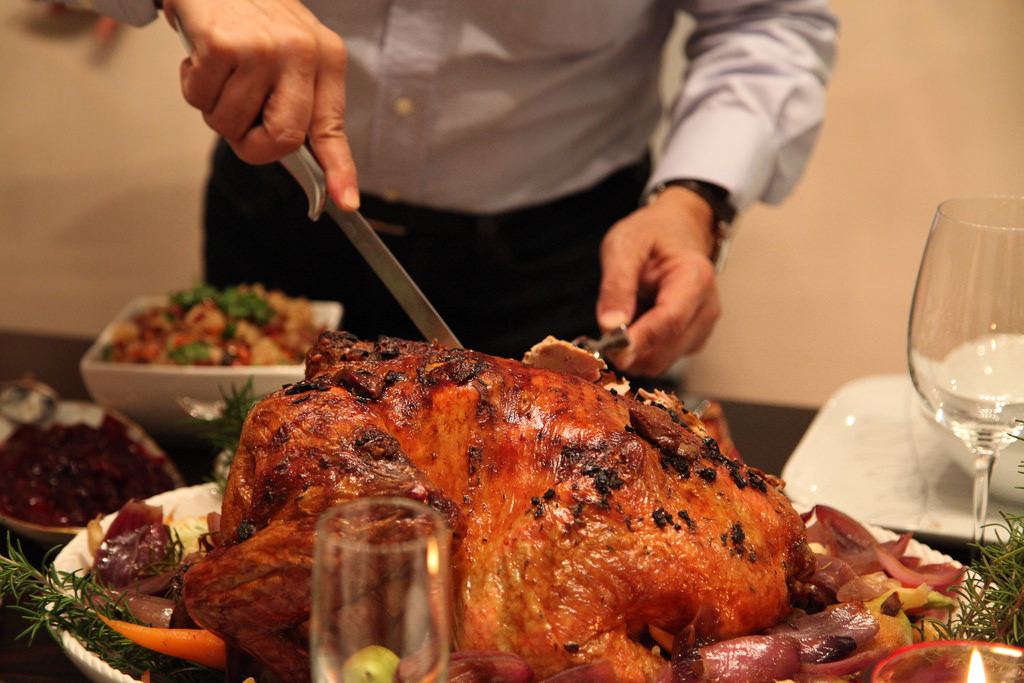
How to Manage Your Food Allergies on Thanksgiving
Thanksgiving is traditionally seen as a time to gather with family and friends to reflect on what they have been thankful for during the previous year, such as good health, a rewarding career, or the opportunity to spend time with loved ones.
One thing 15 million Americans aren’t thankful for is food allergies.
Unfortunately, food allergies have been on the rise in recent years and there is no clear answer as to why. As the incidence rate continues to rise, more and more American families will be navigating the sometimes complicated world of food allergies and will be on the hunt for ways to make family events and holidays like Thanksgiving safer for their loved ones.
At Hudson Allergy we understand that managing food allergies can take an emotional toll on families, particularly due to stress brought on by a new diagnosis. That’s why we worked to put together a list of tips for safely celebrating Thanksgiving with food allergies and alleviate some of that stress.
Here are a few of our tips for enjoying a safe, allergy-friendly Thanksgiving:
Have an action plan – and an emergency plan.
Take time in the days leading up to Thanksgiving to create an “action plan” for the holiday to ensure that safety is always top-of-mind. If possible, offer to host the dinner; this way you’ll know exactly what was prepared in the kitchen, how it was done, and what ingredients went into the food. If you’re not able to host Thanksgiving dinner, ask the host if it would be possible for you to arrive early to help them prepare the meal. If you are in the kitchen on the day of you’ll have a better idea of what dishes are off-limits.
You should also have an emergency plan in place in case the worst-case scenario were to happen. Make sure you have medications on hand (including emergency medicines like an EpiPen) and educate another responsible person on how to administer your medication if necessary. You should also educate them on the signs of an allergic reaction (swelling, hives, dizziness, wheezing, vomiting, abdominal cramps, and loss of consciousness) and be sure they know to call 911 after administering your emergency education.
Read ingredient labels.
Food labels are an important source of information for people with food allergies. If there is a store-bought item on the table, make sure you check the ingredient label before digging in. For safety, “may contain” on ingredient labels should be read as “likely contains.” If there is no label or it has been discarded, don’t risk it.
Be mindful of hidden allergens.
While every family has its tried and true recipes, some home cooks like to try something new on the holidays, and unfortunately this creativity could be a problem for people with allergies. For example, the new salad dressing recipe that Aunt Susan whipped up this year could contain fish, or Uncle Joe might have decided to add peanuts to the dessert he brought. When it comes to homemade dishes and desserts, ask if you can see the recipe or ask about the ingredients. If you’re not sure about a dish, leave it off your plate.
Also, keep in mind that hidden allergens don’t just lurk in homemade foods. There might even be allergens in the turkey due to certain seasonings, basting broth, or additives in the stuffing.
Bring food with you.
If you’re worried that you won’t be able to eat anything prepared at your host’s home or are concerned about cross-contamination of utensils and tableware, play it safe and bring your own plate of food with you. If this makes you feel uncomfortable, ease your anxiety by reaching out to your host ahead of time and letting them know about your allergies. You can tell them in advance that you plan to bring your own meal, and spin it as a positive – it’s one less person they’ll have to buy food for!
Stay mindful if you have to travel.
Managing your food allergies isn’t just limited to home. If you need to travel to get home for Thanksgiving, you should take a moment to think about all the places you may encounter an allergen on your trip and consider how you’ll manage your allergy. If you have a peanut allergy, for example, you can request a peanut-free flight. If you’ll be dealing with any travel or hospitality staff, such as flight attendants or hotel employees, make sure you let them know about your allergy.
While having a food allergy may prevent you from gobbling down everything on the table, it is still very possible to have a safe and happy Thanksgiving without missing out on the fun.
If you have any questions about managing your food allergies on Thanksgiving don’t hesitate to reach out to us. We are here to help! Feel free to give us a call at 212-729-1283 or email us at info@hudsonallergy.com.

